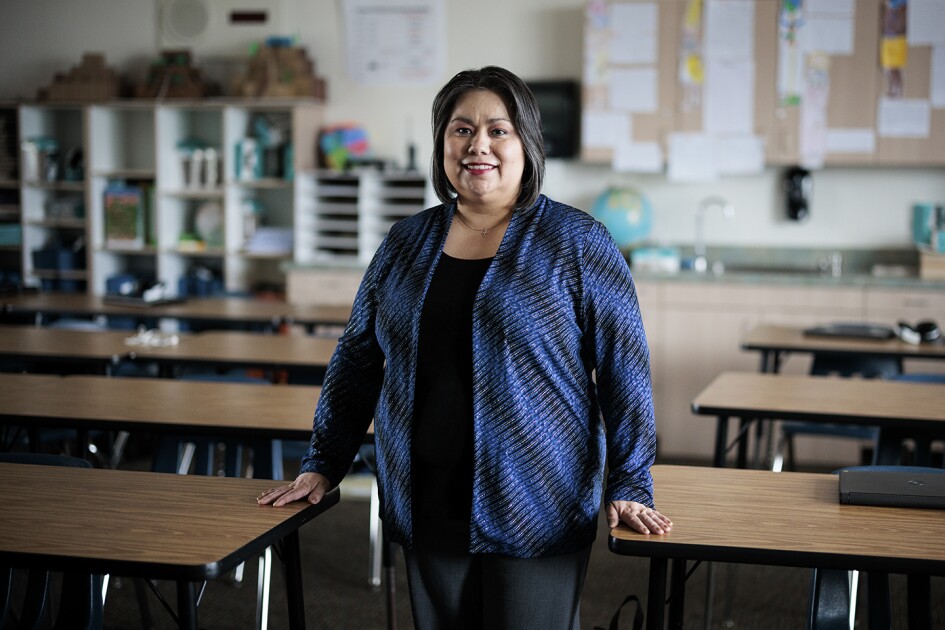Arizona voters are poised to decide whether to dramatically expand eligibility for vouchers in what has become one of the most contentious ballot-box battles over school choice in the 2018 midterm elections.
The ballot measure—called Proposition 305—would allow all public school students in the state to apply for Arizona Empowerment Scholarships, a program currently restricted to select groups of students, such as those attending low-performing schools or those in foster care.
The push to make all of Arizona’s 1.1 million public school students eligible for vouchers has been both contentious and confounding. It started as legislation passed by Republican state lawmakers in 2017 and was signed into law by Republican Gov. Doug Ducey, who is running for re-election.
The new law, however, was challenged by a grassroots group of parents and educators called Save Our Schools, which gathered enough signatures to stall it from going into effect and giving voters the chance to weigh in directly. A national school choice advocacy group with deep ties to U.S. Secretary Betsy DeVos sued to scuttle the voter referendum but lost.
But as Nov. 6 draws closer, some of the same national advocacy groups that lobbied for expanding voucher eligibility in Arizona have all but abandoned defending it in the upcoming referendum. Meanwhile, recent polling shows that a slim majority of Democratic voters say they plan to vote to expand vouchers while Republicans are less enthusiastic—stances which run completely counter to those taken by their elected state representatives. There are some questions, however, about whether rank-and-file voters are interpreting the ballot language correctly.
At the moment, it appears the vote to keep the voucher expansion has a slight edge. However, there is a large share of voters who remain undecided, and the referendum’s fate is still up in the air.
A Catch-22
Technically, the Empowerment Scholarships are not traditional school vouchers, but a hybrid voucher program called an education savings account. State per-pupil dollars are put into special savings accounts parents can draw from to spend on educational services beyond just tuition at private schools, as one would with a voucher. This can include home-schooling supplies, tutors, college courses, or even therapy.
Making all students eligible for education savings accounts is critical to school choice proponents, given that ESAs give parents near-total control over how money is spent on their child’s education.
But while the law would expand the program’s eligibility, the actual number of students who could receive a scholarship would be capped at 30,000. That was fine with some school choice proponents when the legislation was being passed because there would likely be the opportunity to lift the cap through later legislation. But that was before the referendum. Once voters weigh in on Prop. 305, some school choice advocates worry a cap would be permanent.
It’s created a Catch-22 for school choice advocates, where keeping the expansion—a yes vote—would actually mean fewer students overall can get vouchers even though more types of students would be eligible. This is why the American Federation for Children, a prominent school choice group that lobbied for the original law, has reversed its stance on it.
"[I]f the ‘No’ vote wins, more than 250,000 children from the lowest-performing schools, military families, foster care, Native American reservations, or special needs students would have access to an ESA,” the AFC said in a statement, listing off the types of students who are currently eligible for the education savings accounts program and will remain so even if the latest expansion effort fails. “The American Federation for Children supports giving the maximum number of families access to the education that best fits their child’s needs, so on balance, a ‘No’ vote is the best choice for Arizona voters.”
The director of Americans for Prosperity—the influential conservative advocacy group funded by the billionaire brothers Charles and David Koch—told The Arizona Republic the group was not backing the ballot measure for similar reasons.
Arizona is the second state to attempt to expand eligibility for education savings accounts to include all public school students, and it’s also the second state in the last few years to have this effort stall.
Nevada, in 2015, was the first state to pass what’s been called a “universal” school choice law. But the program has been in a legal limbo since then and remains unfunded.
What the Polls Say
While the bill to expand vouchers was opposed by Democratic lawmakers in Arizona, and vouchers are generally opposed by liberal politicians nationally, the expansion effort seems to be drawing a surprising amount of support from likely Democratic voters.
Fifty-one percent of Democrats say they would vote to expand the voucher program, but only 29 percent of Republicans say they would do so, according to a recent poll by Suffolk University and The Arizona Republic.
All told, 41 percent of registered voters support expanding vouchers and 32 percent oppose, while 27 percent were still undecided.
However, voters may be confused by the ballot language, which doesn’t use the word voucher.
In interviews with three voters who were part of The Arizona Republic’s poll, all of them changed their stances on the ballot measure after a reporter explained it.
A Democrat and an independent voter, switched to no, while the Republican voter changed to a yes vote for the measure. In national polling on vouchers, rank-and-file Democrats seem to be more supportive of vouchers than party leadership appears to be, according to an annual survey by Education Next. And there is some polling to suggest that using the word voucher has an effect on people’s attitudes toward the policy.
According to the 2018 annual Education Next survey, support for vouchers for all families rose by 9 percentage points from last year, from 45 to 54 percent. But that’s only if the pollsters didn’t use the word voucher. When they did, support for universal vouchers dropped by 10 percentage points.








